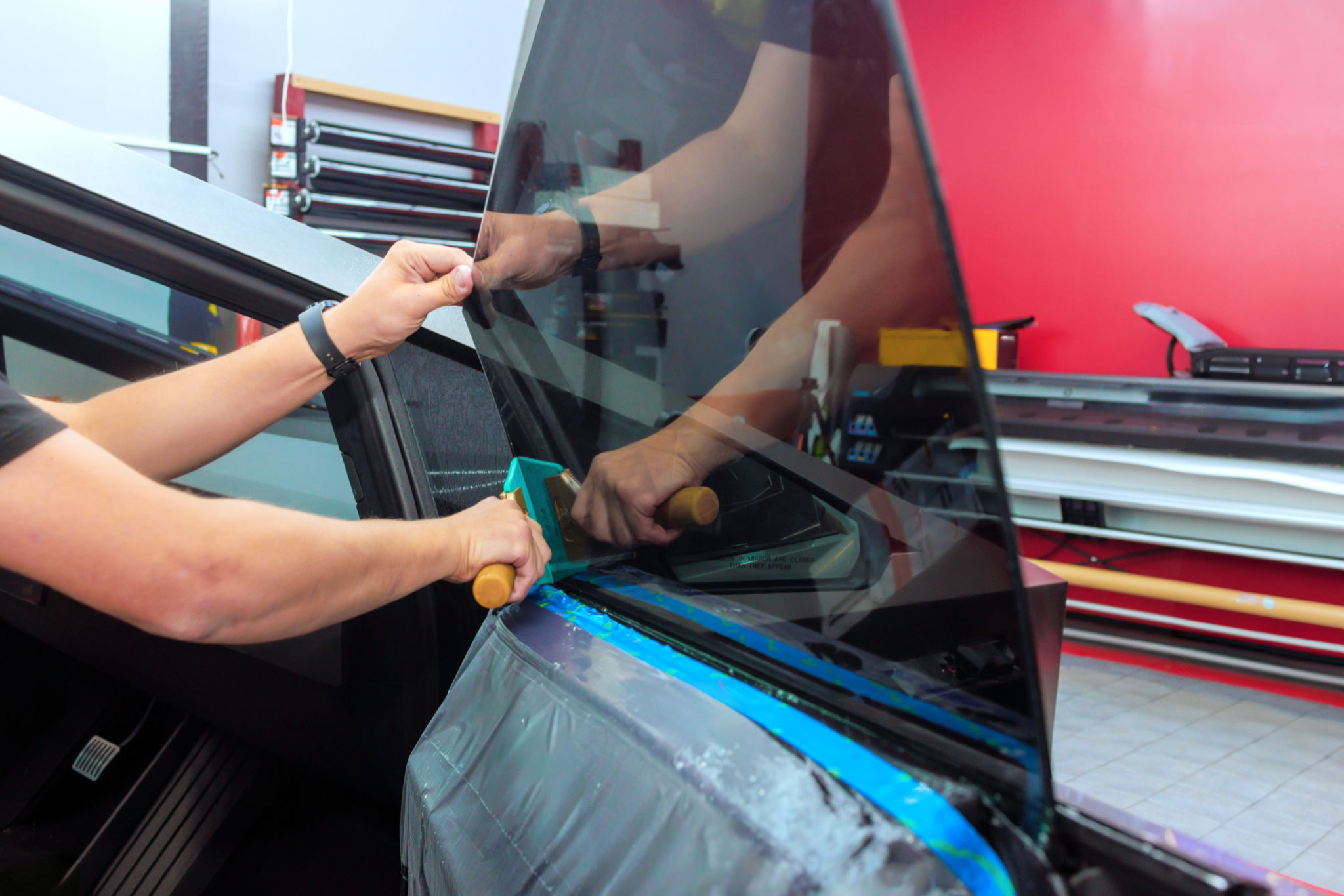Understanding Illinois Tinting Laws and Regulations
Da
Introduction to Illinois Tinting Laws
When it comes to car customization, window tinting is a popular choice for many vehicle owners. However, it's important to understand that each state has its own set of regulations regarding window tinting. In Illinois, these laws are designed to ensure safety while allowing for some level of personal preference. Understanding these laws can help you avoid potential fines and ensure that your vehicle remains compliant.

Understanding Tint Darkness
The darkness of the tint is measured by the Visible Light Transmission (VLT) percentage, which indicates how much light can pass through the film and glass. In Illinois, the law specifies different VLT percentages for different types of vehicles. For sedans, the front side windows must allow more than 35% of light in, while the back side and rear windows can have tints that are as dark as you prefer.
Tinting Rules for SUVs and Vans
For SUVs and vans, Illinois laws are slightly more lenient. The front side windows still require a VLT of more than 35%, but the back side and rear windows can have any level of darkness. This flexibility allows for greater privacy and comfort for passengers in these larger vehicles.

Reflectivity Restrictions
Beyond darkness, Illinois also regulates the reflectiveness of window tints. Reflective tints can help reduce glare and heat, but in Illinois, the law states that no tint can be more reflective than a standard window. This means that mirrored or highly reflective tints are not allowed on any vehicle.
Medical Exemptions
Illinois does offer medical exemptions for those who require special tinting due to health conditions. If you have a medical condition that makes you sensitive to light, you can apply for an exemption with proper documentation from a medical professional. This allows for darker tints than typically permitted by state law.

Penalties for Non-Compliance
Failure to comply with Illinois tinting laws can result in fines and other penalties. The first offense usually results in a warning or a small fine, but repeated violations can lead to more significant fines and even the possibility of having your vehicle registration suspended. Ensuring your vehicle complies with these regulations is crucial to avoid these penalties.
How to Ensure Compliance
To ensure your vehicle is compliant with Illinois tinting laws, it's recommended to consult with a professional installer who is familiar with the state's regulations. They can help you select a film that meets legal requirements and fits your personal preferences. Additionally, always keep a copy of any medical exemption documentation in your vehicle if applicable.

Conclusion
Understanding and adhering to Illinois tinting laws is essential for any vehicle owner considering window tints. By following these guidelines, you can enjoy the benefits of tinted windows while avoiding legal issues. Remember that these regulations are in place to ensure safety on the roads for all drivers and passengers.
